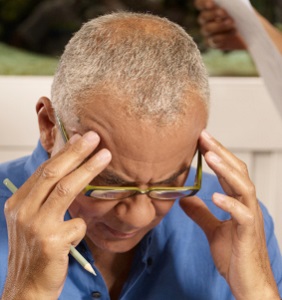Tension
 Tension means to be stretched very tightly, and in mental health, tension refers to extreme strain or pressure.
Tension means to be stretched very tightly, and in mental health, tension refers to extreme strain or pressure.
What is Tension?
Psychological tension is similar to a state of stress, though people experiencing tension tend to describe feelings of tightness, overwhelming anxiety, and uncertainty. Tension can be an individual phenomenon, such as when a person is so overwhelmed at work that he/she feels tension. But tension is also sometimes used to characterize relationships in which stress leads to distance or hostility.
Although psychological tension is often thought of as a brain state that is unrelated to the body, emotional tension can lead to physical tension. People under stress often report physical symptoms such as a pit in the stomach, stiff muscles, or painful joints. Chronic tension can lower immune function and lead to a host of health problems.
Coping with Tension
Many people seek mental health care to deal with chronic tension, and therapy can be especially helpful at alleviating tension in relationships. Changed thought patterns and lifestyle behaviors can both help alleviate tension, and herbal remedies, alternative treatments such as acupuncture or massage, and/or psychoactive drugs may also help in some cases.
In addition to therapy, there are several well-documented methods for alleviating tension both in the moment and on a long-term basis. Deep-breathing exercises help many people to re-center themselves during times of stress, and visualization coupled with deep breathing can also be helpful. Some people find that meditation allows them to quiet a tense, anxious mind. Exercise also plays a significant role in tension reduction. Some people report that exercise is as effective at treating tension as medication, and regular exercise can help alleviate the physical effects of psychological tension.
References:
- Mayo Clinic Staff. (2012, July 21). Exercise and stress: Get moving to manage stress. Mayo Clinic. Retrieved from http://www.mayoclinic.com/health/exercise-and-stress/SR00036
- Stress: The different kinds of stress. (n.d.). American Psychological Association. Retrieved from http://www.apa.org/helpcenter/stress-kinds.aspx
Last Updated: 08-28-2015
- 1 comment
- Leave a Comment
Jerra
August 6th, 2022 at 6:07 PMHi
Leave a Comment
By commenting you acknowledge acceptance of GoodTherapy.org's Terms and Conditions of Use.
